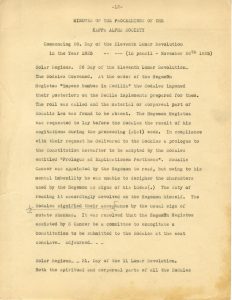Professors and Students Comment on the Tragic Death of Mahsa Amini in Iran
October 13, 2022
This is a distillation of the interviews with professors and a student on the topic of the seat of Mahsa Amini. It was not published for reasons related to formatting, and not content. Direct quotes from the interview is in print on the 10/13 edition of the Concordiensis, distributed around campus, available for free.
The death of Mahsa Amini came as a shocker to the world, who were appalled by the level of injustice that took place towards the woman who violated a dress code. This unfortunate event did not only raise an eye toward the repression against women, but also against police brutality in authoritative states like Iran.
Doris Zemurray Stone Professor of Modern Literary and Historical Studies, Professor of Political Science and American Studies Program Director, Lori Jo Marso, and Professor of Economics, Eshragh Motahar commented on this event. Allyson Bennett’ 26 also commented on her views on this situation.
When asked about how they felt regarding the situation when they first heard it, Professor Motahar said that he felt “Profound sadness–the same as when I heard the news of Shireen Abu Akleh’s death. Or indeed the same as hearing the news of so many people, including women, being killed by the police in the U.S.”
Professor Marso added that “Like many, I was horrified to hear of this murder, but I am inspired that so many in Iran are risking their lives by occupying the streets in mass protests. These protests have sparked what looks like a broader coalition across gender, age, class, and ethnic lines, which is a hopeful sign.”
Benett comments that “It honestly gave me deja vu to the protests over the murder of George Floyd in the U.S.”
Amni’s death sparked plenty of protests in Iran but no action was taken when the mandatory hijab law was passed, when asked if women in Iran should have protested then, Professor Marso says that “Since the 1979 revolution, there has been an ongoing conversation…When we think about protest, we need to broaden our view to consider everything from small acts of refusal to public demonstrations such as the ones that are occurring right now, to scholarly feminist debates amongst Iranian feminists who read the Koran with a feminist perspective to challenge Islamic fundamentalism.”
While Professor Motahar claims that “They have been protesting against it in one form or another for over four decades, they also have been protesting against other forms of oppression; e.g.the Draconian U.S. sanctions imposed on ordinary people of Iran for forty-three years”
Bennett feels that “women didn’t protest because it was either normal to wear a hijab or because they didn’t feel empowered to do so”.
The future in Iran, especially for women, is going to be challenging. Only time will tell if Iran can overcome such repressive laws that dictate them to dress in a way that is “modest” according to the government.
Allyson Bennett hopes that if the protests continue in their “normal flow,” the Iranian government will “cave and remove the hijab mandate.”
Professor Motahar says that he is “reluctant to speculate” but is positive that “the government in Iran has evolved over the past 43 years, and if one were to extrapolate, it is reasonable to conjecture that things might change.”
Professor Marso feels that “The hijab law has always been challenged by Iranian women in big and small ways.” “It’s also possible that these protests will give women even more courage to continue this struggle and move the bar closer to freedom on this issue,” Marso continues.
Looking for the full interview? See this article: https://concordiensis.com/4121/world/addendum-full-interviews-with-professors-and-students-on-the-tragic-death-of-mahao-amini-in-iran/






